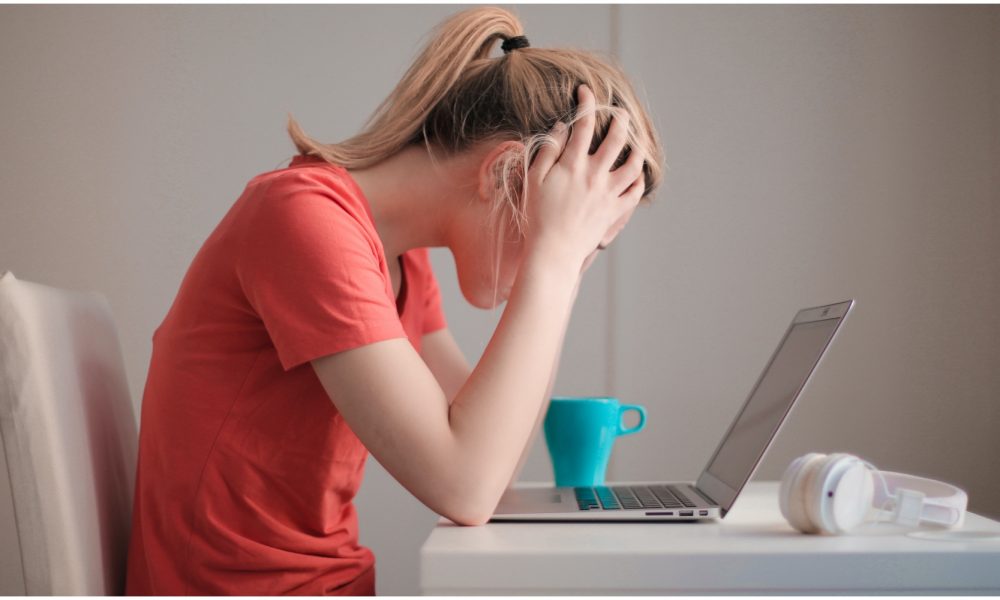
Can Too Much of Caffeine Affect Your Mental Health?

 People around the globe have been drinking and enjoying their cup of joe since the 15th century. Today, at least 64% of adults in the United States drink coffee daily. Not only do they love the taste, but also the impact of coffee. The sudden alertness and the extra dose of energy that a cup of joe can lend is something to enjoy. That jolt of energy first thing in the morning is exactly what you need to power through your day. It can improve your memory and focus.
People around the globe have been drinking and enjoying their cup of joe since the 15th century. Today, at least 64% of adults in the United States drink coffee daily. Not only do they love the taste, but also the impact of coffee. The sudden alertness and the extra dose of energy that a cup of joe can lend is something to enjoy. That jolt of energy first thing in the morning is exactly what you need to power through your day. It can improve your memory and focus.
We know that there are innumerable benefits of coffee, but there may also be a case of side effects of coffee – such as anxiety. It does not cause worry in people but it can certainly aggravate uneasiness in people who are prone to anxiety.
Is Coffee or Caffeine Good For Everyone?
As per the National Institute of Mental Health, almost 31 percent of U.S. adults may experience an anxiety disorder in some way or the other. Caffeine has a close association with anxiety. There has been a long list of caffeine-related disorders as listed by the Diagnostic and Statistical Manual of Mental Disorders. Some of the side effects of coffee or the caffeine content in coffee involve caffeine intoxication, caffeine withdrawal symptoms, sleep disorders, and more. A 2008 study showed that although caffeine increased alertness by blocking a brain chemical (adenosine) that causes fatigue, it may also release adrenalin that’s known to increase energy and if the caffeine intake is high, the effects of the same will be more pronounced leading to caffeine-induced anxiety.
Caffeine Sensitive People May Steer Clear
 While there are several benefits of caffeine, high doses are can lead to anxiety symptoms, and people who have a panic disorder and social anxiety disorder may get affected severely. A 2005 study showed that excessive caffeine consumption led to several psychiatric conditions such as sleep and anxiety disorders, increasing the feeling of hostility, anxiety, and psychotic symptoms. Some of the caffeine-induced symptoms include nervousness, restlessness, fast heart rate, gastrointestinal problems, insomnia, and more. Hence, people who do suffer from anxiety-related mental health conditions, or are easily stressed in general should stay away from frequent use of coffee.
While there are several benefits of caffeine, high doses are can lead to anxiety symptoms, and people who have a panic disorder and social anxiety disorder may get affected severely. A 2005 study showed that excessive caffeine consumption led to several psychiatric conditions such as sleep and anxiety disorders, increasing the feeling of hostility, anxiety, and psychotic symptoms. Some of the caffeine-induced symptoms include nervousness, restlessness, fast heart rate, gastrointestinal problems, insomnia, and more. Hence, people who do suffer from anxiety-related mental health conditions, or are easily stressed in general should stay away from frequent use of coffee.
The Caffeine Withdrawal Symptoms
If you’re someone who consumes caffeine regularly and stops abruptly, you can experience several withdrawal symptoms, such as, depressed mood, headaches, fatigue, anxiety, difficulty in concentrating, tremors and irritability. Caffeine withdrawal can be difficult and distressful. You can talk to your doctor about how you can, slowly but surely, cut back on your caffeine intake. You need to be mindful of your caffeine count daily since it can sneak into your diet in numerous ways, such as even in decaf coffee, there may be 3-12 mg of caffeine while an expresso may contain as much as 240-72 mg amount of coffee. Even your harmless-looking energy drink can contain as much as 107-120 mg of caffeine.
How Much Caffeine is Too Much?
 As per the U.S. Food and Drug Administration (FDA) Trusted Source, 400 milligrams a day, which can mean anywhere about 4 cups of coffee, may not affect people and there may not be any negative or dangerous effects for healthy adults. If you go the above limits of 400 milligrams a day it can be harmful. For instance, going as high as 1,200 mg of caffeine a day can lead to severe side effects, such as seizures.
As per the U.S. Food and Drug Administration (FDA) Trusted Source, 400 milligrams a day, which can mean anywhere about 4 cups of coffee, may not affect people and there may not be any negative or dangerous effects for healthy adults. If you go the above limits of 400 milligrams a day it can be harmful. For instance, going as high as 1,200 mg of caffeine a day can lead to severe side effects, such as seizures.
When you review these figures, you can keep in mind that there may be wide variations in the way they react to different people’s sensitivities and how they metabolize them. If you are taking certain medications, it can also affect your caffeine consumption. You can speak to your doctor about any specific concerns that you may be having.
Conclusion
With so much research on caffeine and mental disorders, there is a link, especially when it comes to caffeine-induced anxiety disorder. For most people, moderate caffeine intake is considered safe and can even boast many benefits. If you are downing too many cups of coffee and suffering from an anxiety disorder, you need to reduce your coffee consumption gradually. Remember sudden cut down on coffee can also lead to anxiety so the scaling back should be gradual. If cutting down seems too overwhelming, talk to your doctor about what is the right amount for you and stick to that amount to stop suffering from its negative effects.
More in Mental Health
-
`
5 Reasons Why Dad’s Side of the Family Misses Out
Family bonds are intricate and multifaceted, often creating a unique tapestry of connections. However, many people notice a peculiar trend: stronger...
July 12, 2024 -
`
A Quick Guide on How to Get Short-Term Disability Approved for Anxiety and Depression
Living with anxiety or depression poses unique challenges, particularly in the workplace, where stress can exacerbate symptoms. For many, short-term disability...
July 5, 2024 -
`
Why Do People Feel Sleepy After Eating?
Is feeling sleepy after eating a sign of diabetes? Well, not directly. There are many reasons why you feel drowsy after...
June 20, 2024 -
`
What Is High-Functioning Depression? Symptoms and Treatment
High-functioning depression may not be a term you hear every day, but it’s a very real and challenging experience for many....
June 13, 2024 -
`
Kelly Clarkson’s Weight Loss Ozempic Journey – Debunking the Rumors
In a refreshing moment of transparency, Kelly Clarkson, the beloved singer and talk show host, sheds light on her remarkable weight...
June 3, 2024 -
`
What Is the Best Milk for Gut Health and Why?
In recent years, the milk section at the grocery store has expanded far beyond the traditional options. While cow’s milk has...
May 30, 2024 -
`
Do Dental Implants Hurt? Here’s All You Need to Know
When you hear “dental implants,” you might wince at the thought of pain. But do dental implants hurt as much as...
May 24, 2024 -
`
5 Key Differences Between A Psych Ward & A Mental Hospital
Curious about the differences between a psych ward and a mental hospital? You are not alone. With the mental health conversation...
May 16, 2024 -
`
It’s Official! “Selling Sunset’s” Christine Quinn & Husband Christian Dumontet Are Parting Ways
Have you ever found yourself unexpectedly engrossed in the personal lives of celebrities, especially when their stories take dramatic turns? Well,...
May 9, 2024










You must be logged in to post a comment Login